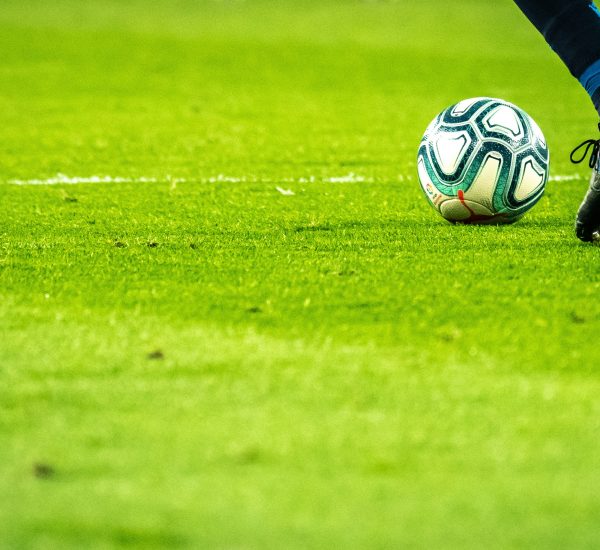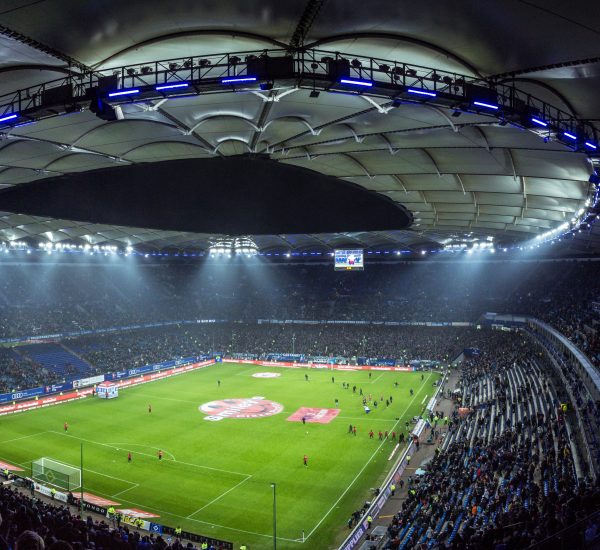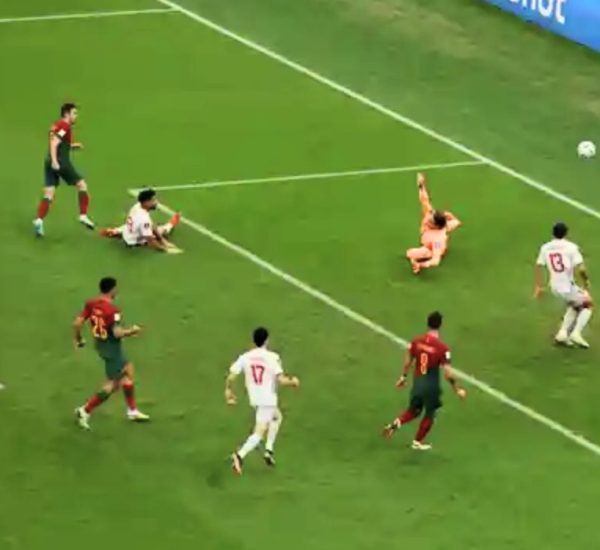Arsenal Football Club or The Gunners are an English professional soccer team that competes in the Premier League. They are based in London, United Kingdom.
Arsenal plays their home games at the Emirates Stadium. The stadium has a capacity of 60,704 seats. The Gunners currently hold the record for the most FA Cup trophy won by an English side at writing. Besides, they are the only team that managed a whole Premier League campaign without a single defeat in 38 games.
Arsenal history is an amalgam of both low and high periods. This article is everything you need to learn about the history of The Gunners.
| Full Name | Arsenal FC |
|---|---|
| Founded | October, 1886 |
| Nickname | The Gunners |
| Stadium | Emirates Stadium |
| Capacity | 60,704 |
| Owner | Kroenke Sports & Entertainment |
| Manager | Mikel Arteta |
| League | Premier League |
Foundation Of Arsenal FC
The year 1886 marked the foundation of Arsenal FC as Dial Square Football Club. The man behind the creation of the London team was David Danskin. The Scotsman got the support of an additional fifteen munitions workers. They chose the name Dial Square after a workshop at the Royal Arsenal complex.
The first game of Dial Square resulted in a 6-0 win against Eastern Wanderers. The fixture took place on December 11, 1886. Less than one month after its formation, the club changed its name to Royal Arsenal. The Plumstead Common was the club’s first home ground. Yet, they played most of their games at the Manor Ground.
In 1891, they joined the history books by becoming the first London side to turn professional. Two years later, the London club changed its name to Woolwich Arsenal. The club escaped bankruptcy in 1910.
Royal Arsenal got a new ground in the name of Arsenal Stadium in 1913. Besides, the team was renamed to The Arsenal the same year and Arsenal two years later. In 1919, The Arsenal was promoted to the First Division over Tottenham Hotspur. This decision gave birth to the rivalry between the two London sides.
Rise Of Arsenal Under Chapman
The Gunner’s entry into the First Division and their new stadium brought much luck and success to them. In addition, it helped the club become financially stable. In 1925, Arsenal appointed Herbert Chapman as their new manager. The gaffer secured the signature of numerous talented players.
Chapman brought in Cliff Bastin, Eddie Hapgood, David Jack, and Alex James. The signings proved decisive as The Gunners secured their first FA Cup trophy in 1930. They defeated Huddersfield Town by 2-0 in front of 92,499 soccer fans at the Wembley Stadium.
Chapman guided his team to two First Division titles in 1931 and 1933. He also introduced shirt numbers and white sleeves on the team’s jersey. Unfortunately, the Arsenal manager tragically lost his life on January 6, 1934. He suffered from pneumonia.
More First Division Success After Chapman
Joe Shaw and George Allison continued the work left by Herbert Chapman after his death. The Gunners marched on to more league success as they claimed the First Division title in the 1933-34 and 1934-35 campaigns.
Arsenal won their second FA Cup trophy the following year by overcoming Sheffield United by 1-0. They secured a fifth First Division trophy in the 1937-38 campaign. But, unfortunately, World War II resulted in the postponement of soccer for seven years.
Arsenal returned to winning ways after the war. They claimed a sixth league title in 1948. As the years went by, The Gunners lifted a third FA Cup two years later. They also managed a seventh First Division title in the 1952-53 season.
Many Arsenal players lost their lives following the war. As a result, the club was subject to significant financial issues.
18 Years Trophy Drought
The Gunners could not win a single trophy for the next 18 years. It remains Arsenal’s longest run without silverware to date. In 1971, the London club finally put its hand on two domestic trophies. They claimed the FA Cup and the First Division title.
After their domestic double, Arsenal’s performance somehow declined steadily. The team managed to reach the final of the FA Cup in 1972 but lost to Leeds United. Besides, they finished the 1972-73 season as runner-up.
The Gunners had another four finals between 1978 and 1980. They lost the 1978 and 1980 FA Cup finals to Ipswich Town and West Ham United, respectively. However, the London club managed a fifth FA Cup triumph in the 1979 final after defeating Manchester United by 3-2. They lost the 1980 European Cup Winner’s Cup final on penalties against Valencia.
Revival Under George Graham
Arsenal appointed George Graham as their manager in 1986. The gaffer did not take long to bring glory back to Highbury. One year after his appointment, Arsenal secured their first League Cup by defeating Liverpool by 2-1. Ian Rush opened the score for The Reds, but a brace from Charles Nicholas saw The Gunners lift the trophy.
Graham signed Nigel Winterburn, Lee Dixon, and Steve Bould to strengthen The Gunner’s defense. With Tony Adams, the three new signings formed the “famous Back Four.”
The team claimed the 1988-89 First Division trophy on the last day of the season. A late goal from Michael Thomas against Liverpool guaranteed a ninth English title for the London club. Graham secured his second league title in two years for Arsenal when he finished the 1990-90 campaign as Champions.
Arsenal managed a domestic double two years later. Then, in 1993, they won the FA Cup and the League Cup. One year later, Graham led his team to a historic European Cup Winners’ Cup trophy. They overcame the Italian side, Parma, in the final by 1-0. Alan Martin Smith scored the only goal of the game. Graham was cleared of his duties in 1995 following a bribery case.
Arsène Wenger; Made For Arsenal
Arsène Wenger was appointed as Arsenal’s permanent coach in 1996. A disciplined coach in every aspect, Wenger turned his side into an attacking threat in England and Europe. His players followed strict work and diet plans to perform at the highest level.
After his arrival, the Frenchman brought in fellow players like Patrick Vieira and Thierry Henry. As a result, Wenger became the second Arsenal manager to manage a league and cup double. He claimed the 1997-98 Premier League title and the FA Cup trophy.
Despite making it to the 1999-2000 UEFA Cup final, The Gunners finished as runner-up. However, Galatasaray won the trophy courtesy of a penalty shootout win of 4-1.
Three seasons later, Wenger repeated the feat by again achieving another league and cup double. In the league, they finished first with 87 points. Thierry Henry finished the season as the top scorer with 24 goals. In the FA Cup final, Arsenal overcame rivals, Chelsea, by 2-0.
Arsenal, The Invincibles
Arsenal claimed a ninth FA Cup glory in 2003. They faced Southampton on May 17, 2003, at the Millennium Stadium in Cardiff. The match ended 1-0 with Robert Pires scoring the game’s only goal in the 38th minute.
The 2003-04 Premier League campaign will remain engraved in the memory of every Arsenal fan. The soccer world witnessed an incredible team guided by Arsène Wenger take the English soccer by storm. The French manager had a dream team with Thierry Henry, Dennis Bergkamp, Edu, Patrick Vieira, Kolo Touré, Lauren, Ashley Cole, Sol Campbell, and Jens Lehmann.
That season, The Gunners won 26 out of 38 games and made 12 draws. Yes, you guessed it right. Arsenal did not suffer a single defeat the whole campaign. They finished the season as Champions of England with 90 points. Arsenal was awarded a golden trophy by the Premier League thanks to their unbeaten record. They got the nickname “The Invincibles” associated with them.
That season, club striker Thierry Henry finished the season as the league’s top scorer. He scored 30 goals, 8 more than Newcastle United striker Alan Shearer. Henry also won the PFA Players’ Player of the Year. In addition, club manager Arsène Wenger won the LMA Manager of the Year award.
Champions League Final Under Wenger
Arsenal qualified for the UEFA Champions League final in 2006. They faced the Spanish side, FC Barcelona, at the Stade de France, Saint-Denis. Barcelona eventually won the big ears trophy by overcoming The Gunners by 2-1.
From Highbury To The Emirates Stadium
Arsenal previously played at Highbury for 93 years. Highbury had a capacity of 38,419 seats. However, the club needed to match their rivals in terms of finance and players signings. So they decided to move to a bigger stadium.
The Emirates Stadium became Arsenal’s new home ground in June 2006. It can accommodate up to 60,704 fans when fully packed. Thus, the new stadium was synonymous with more revenue. Moreover, it helped the club massively from a financial point of view.
More FA Cup Glory For The Gunners
Arsenal had two League Cup finals in 2007 and 2011, respectively. The club finished runner-up on both occasions.
On September 2, 2013, Arsenal secured the signature of Mesut Özil from Real Madrid for a fee of £42.5 million. The acquisition of the talented midfielder brought much hope to the fans. However, the last trophy won by the London club was the 2005 FA Cup.
Arsenal was a finalist of the 2014 FA Cup. They faced Hull City at the Wembley Stadium. During an epic encounter between the two sides, Hull led by two goals within 10 minutes. Goals from Santiago Cazorla and Laurent Koscielny took the match into extra time. Aaron Ramsey eventually gave the victory to The Gunners.
Wenger and his side defended their FA Cup trophy the following year. They overcame Aston Villa by 4-0 in the finals to claim their 12th FA Cup trophy. Two years later, Arsenal made it a 13th FA Cup win courtesy of a 2-1 win over Chelsea. Arsène Wenger left the managerial position of the club on May 13, 2018. The gaffer spent 22 years at the club.
Life After Arsène Wenger
Spanish coach Unai Emery replaced the departing Wenger at Arsenal. Emery previously coached the French side, Paris Saint-Germain. During his first season in charge, Arsenal finished fifth in the league. On the European level, Arsenal qualified for the UEFA Europa League final. However, the Gunners eventually lost the trophy to Chelsea in an encounter that finished 4-1.
After a series of poor performances, Emery was sacked as Arsenal manager. Interim head coach Freddie Ljungberg replaced him.
Former Arsenal player, Mikel Arteta, was appointed as the head coach on December 20, 2019. He guided Arsenal to an 8th place finish during the first season. In the FA Cup, Arsenal defeated Chelsea by 2-1 to claim a record 14th trophy. Pierre-Emerick Aubameyang scored a brace in the final.
The Future Of Arsenal FC
Arsenal fans hope that Mikel Arteta can restore the club’s chances of winning the Premier League title again. They will also look to perform better on the European stage.
| Competitions | Trophies |
|---|---|
| First Division / Premier League | Champions (13 times): 1930–31, 1932–33, 1933–34, 1934–35, 1937–38, 1947–48, 1952–53, 1970–71, 1988–89, 1990–91, 1997–98, 2001–02, 2003–04 |
| FA Cup | Champions (14 times – record): 1929–30, 1935–36, 1949–50, 1970–71, 1978–79, 1992–93, 1997–98, 2001–02, 2002–03, 2004–05, 2013–14, 2014–15, 2016–17, 2019–20 |
| League Cup / EFL Cup | Champions (2 times): 1986–87, 1992–93 |
| FA Community Shield | Champions (16 times): 1930, 1931, 1933, 1934, 1938, 1948, 1953, 1991 (shared), 1998, 1999, 2002, 2004, 2014, 2015, 2017, 2020 |
| UEFA Cup Winners’ Cup | Champions (1 time): 1993–94 |



